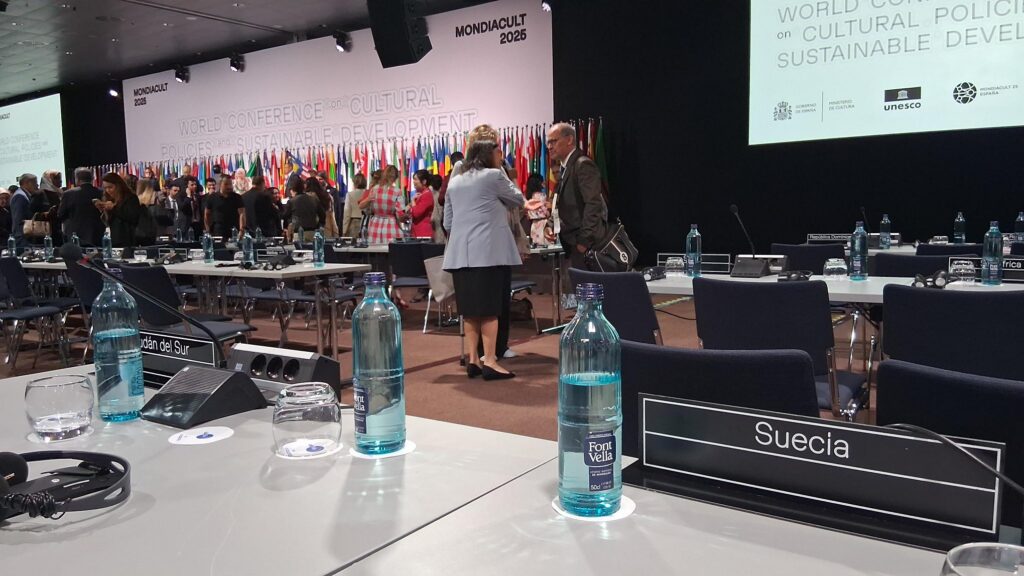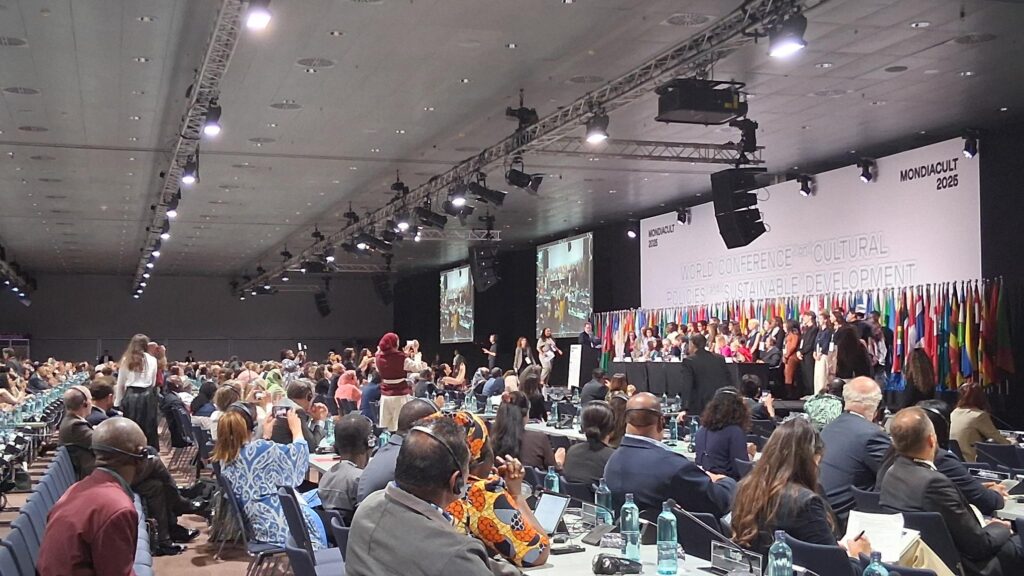MONDIACULT 2025 – A commentary and analysis
2025-10-01
MONDIACULT – UNESCO’s World Conference on Cultural Policies and Sustainable Development took place in Barcelona (29 Sept-1 Oct 2025). UNESCO is the United Nations organization that promotes cooperation in education, science, culture and communication to foster peace, security and sustainable development worldwide. “Culture of Peace” has long been one of UNESCO’s most memorable concepts.

With this in mind, it was surprising that at MONDIACULT there were Ministers of Culture that emphasized culture as the soul of a country and an expression of national freedom, the need for cultural preparedness in the face of military threats, and cultural policy as a form of survival, security and defence strategy, not the least because foreign forces are known to attack first the cultural fabric that binds societies together.
Such language is very different from the general commitment of all states not only to UNESCO as such, including its Culture of Peace programme, but also to cultural rights as a part of global human rights. The logic of war must not trump culture. As Alexandra Xanthaki, the UN Special Rapporteur for Cultural Rights, emphasized several times during the conference, cultural rights are about the rights of individuals and groups: they oblige states to implement the rights of minorities, marginalized people and migrants, among others, not to foster or support majority state culture. I would add that culture should not be what sustains people when everything else is taken away from them, but what prevents states or anybody from taking away everything from anyone in the first place.
Similarly surprising to me was that some of the discussions were still about protecting and preserving cultural heritage or returning it to their rightful owners. This is a perspective of culture as a valuable resource and property, something you don’t want to be deprived of as that would mean, according to some, that you lost your “heartbeat” and your past. This is a familiar view that is sometimes also taken regarding cultural heritage. But it chimes poorly with the many statements we heard during the conference that culture is primarily about our common humanity. Indeed, UNESCO’s very constitution from 1945 discusses culture in the context of a general human (and not the nations’) dignity.

There is one additional aspect to this. When some policy makers declared in Barcelona that culture must be safeguarded because “culture is who we are”, I partly disagree. In many respects, the world is not in a good state because of who we were, and are. Culture is also about who we would like to be, or perhaps become, as human beings on our shared planet. That is why it was disappointing to see that MONDIACULT 2025 did not take up the spirit of the 2024 United Nations Summit of the Future and improve on the recognition of culture in the Pact for the Future.
Today, humanity is at a time of profound global transformation, requiring us to change course so that we do not risk tipping into a future of persistent crisis and breakdown. But what exactly does this mean for cultural heritage which is the way in which we today recall the past? After all, as the Spanish Minister of Culture had it at MONDIACULT, “culture is where all changes begin” – it is about transformation, innovation and creativity. In other words, the question is not how to safeguard culture and heritage ahead of threats that may be anticipated in an uncertain future. One key question is rather how we make sense of the past in a world where the future is not what it used to be (as Marek Tamm once wrote). Culture has some of the answers: long-term thinking, embracing change, and understanding what it means to be human.
Finally, what is the way forward? Senior decision-makers emphasized on several occasions the need of evidence-based policy and the benefits of culture for meeting indicators of environmental, economic, and social development as well as for fostering national identities and even as an asset for national defence. But this does not fit very well to Pedro Sanchez, Prime Minister of Spain, declaring in his Opening Speech that “culture invites us to dream”. Similarly, Octavio Paz was quoted as saying that the world is a projection of our images and, one might add, of our narratives and worldviews. Others talked in this context about a holistic perspective we need to take—one that not the least integrates culture and nature. According to that view, we do not benefit from culture when it is part of a fragmented and siloed view of the world, sought to be instrumentalized for various purposes, and regularly assessed for its value, in particular its contribution to gross domestic product (GDP).
Instead, the kind of culture that gives us hope in the present time is what provides happiness and wellbeing for people. That is why we need to develop and implement measures of progress for human work that go beyond GDP. Culture can be the place where such change begins.
Cornelius Holtorf, UNESCO Chair on Heritage Futures, Linnaeus University, Kalmar, Sweden










[…] The new funding for this and a number of additional smaller projects, means that the Climate Heritage Network is…
[…] Chair on Heritage Futures « Culture, cultural heritage and COP26 […]
[…] mer på Unescoprofessurens blogg http://blogg.lnu.se/unesco/?p=1061 Besök Öland 2050! […]